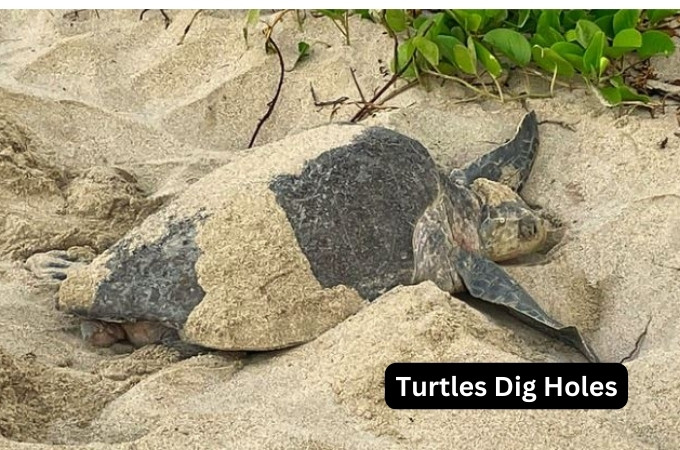Is Your Turtle Getting Too Fat? [Do These]
Today we discuss Is Your Turtle Getting Too Fat. Turtles are adorable pets that bring joy and companionship to many households. However, just like any other animal, turtles can become overweight if not properly cared for.
In this blog post, we will explore the reasons why turtles gain excess weight, the potential health risks associated with obesity in turtles, and most importantly, what you can do to help your turtle maintain a healthy weight. Let’s dive in!
Is Your Turtle Getting Too Fat:
Understanding Turtle Obesity:
Turtle obesity is a common issue that can arise due to various factors such as overfeeding, lack of exercise, and improper diet.
When a turtle consumes more calories than it can burn off, the excess energy is stored as fat, leading to weight gain.
Additionally, certain species of turtles are more prone to obesity than others, so it’s essential to monitor your turtle’s weight regularly.
Health Risks of Obesity in Turtles:
Just like in humans, obesity in turtles can have serious health consequences. Some of the common health risks associated with overweight turtles include:
- Organ Malfunction: Excess fat deposits can put pressure on internal organs, leading to organ dysfunction.
- Shell Deformities: Obesity can cause the shell to grow abnormally, leading to shell deformities and mobility issues.
- Decreased Lifespan: Overweight turtles are more prone to diseases and have a shorter lifespan compared to healthy weight turtles.
Signs Your Turtle is Overweight:
It’s essential to recognize the signs of obesity in turtles early on to prevent further health complications. Some common signs that your turtle may be overweight include:
- Excessive Fat Deposits: Check for extra layers of fat around the neck, limbs, and tail.
- Difficulty Moving: If your turtle struggles to move or appears lethargic, it may be a sign of excess weight.
- Shell Abnormalities: Look for any irregularities or soft spots on your turtle’s shell, which could indicate obesity.
Tips for Helping Your Turtle Lose Weight:
If you’ve noticed that your turtle is overweight, don’t worry! There are several steps you can take to help your turtle shed those extra pounds and maintain a healthy weight:
- Balanced Diet: Consult with a veterinarian to create a balanced diet plan tailored to your turtle’s specific needs.
- Regular Exercise: Provide ample opportunities for your turtle to exercise by creating a stimulating environment with climbing structures and swimming space.
- Monitor Portions: Avoid overfeeding your turtle and stick to recommended portion sizes to prevent excess weight gain.
Creating a Healthy Environment for Your Turtle:
In addition to diet and exercise, creating a healthy environment for your turtle is crucial for maintaining its overall well-being. Here are some tips for ensuring your turtle’s habitat promotes a healthy lifestyle:
- Proper Lighting: Ensure your turtle has access to UVB lighting to support calcium absorption and overall health.
- Maintain Water Quality: Keep your turtle’s water clean and at the appropriate temperature to prevent infections and promote hydration.
- Provide Hiding Spots: Offer hiding spots and basking areas in your turtle’s enclosure to reduce stress and promote natural behaviors.
Monitoring Your Turtle’s Progress:
Consistency is key when it comes to helping your turtle lose weight. Keep track of your turtle’s progress by monitoring its weight regularly and making adjustments to its diet and exercise routine as needed. Remember, gradual weight loss is healthier and more sustainable than rapid changes.
When to Seek Veterinary Care:
If despite your efforts, your turtle is not losing weight or if you notice any concerning symptoms, it’s essential to seek veterinary care promptly. A reptile veterinarian can provide a thorough examination, diagnose any underlying health issues, and recommend a tailored treatment plan for your turtle’s specific needs.
Conclusion:
maintaining a healthy weight is crucial for your turtle’s overall well-being and longevity. By understanding the causes of obesity in turtles, recognizing the signs of excess weight, and taking proactive steps to help your turtle lose weight, you can ensure that your beloved pet lives a happy and healthy life. Remember, small changes can make a big difference when it comes to your turtle’s health!


